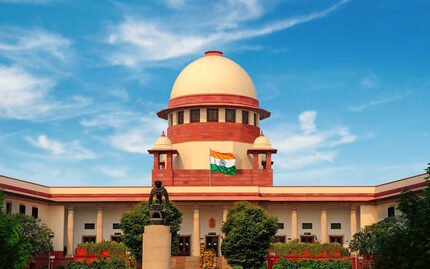Published on :
New Delhi: The Telangana Government moved the Supreme Court on Thursday seeking directions to State’s Governor Tamilisai Soundararajan to give her assent to ten key bills passed by the State legislature which are pending before her.
The plea said that the State has been forced to invoke the apex court’s jurisdiction under Article 32 due to the frequent constitutional impasse created on account of the refusal of the Governor of Telangana to act on several bills passed by the State legislature.
“In a parliamentary democracy the Governor has no discretion to differ or delay necessary assent as required on the bills presented for assent. Any refusal on the part of the Governor including any delay will defeat the parliamentary democracy and the will of the people,” the plea said.
As per the plea the following bills are pending since September 14, 2022 till date for the assent of the Governor:
– Azamabad Industrial Area (Termination and Regulation of Leases) (Amendment) Bill, 2022,
– Telangana Municipal Laws (Amendment) Bill, 2022,
– Telangana Public Employment (Regulation of Age of Superannuation) (Amendment) Bill, 2022
– University of Forestry Telangana Bill, 2022
– Telangana Universities Common Recruitment Board Bill, 2022,
– Telangana Motor Vehicles Taxation (Amendment) Bill, 2022,
– Telangana State Private Universities (Establishment and Regulation) (Amendment) Bill, 2022,
– Professor Jayashankar Telangana State Agricultural University (Amendment) Bill, 2023,
– Telangana Panchayat Raj (Amendment) Bill, 2023 and the
– Telangana Municipalities (Amendment) Bill, 2023.
The plea highlighted Article 163 of the Constitution as per which the Governor is required to exercise his functions or any of them in his discretion only on the aid and advice of the council of ministers with the Chief Minister as its head.
“The Governor is not expected to act independently. This position has been amply made clear by the constitution bench of the Supreme Court in Samsher Singh Vs State of Punjab,” the petition stated.
Specifically with regard to the Governor’s powers on dealing with bills, the State pointed to Article 200 of the Constitution.
“The Governor may assent or may withhold assent in which case the bill must be returned together with the message requesting that the houses will reconsider the bill for any specified provision and will consider the desirability of introducing any such amendments as it may recommend in his message. If the bill is so returned, the houses are required to reconsider accordingly and once passed with or without the amendments so suggested and presented to the Governor for assent, the Governor shall not withhold the assent,” it was submitted.
Article 200 does not also confer any independent discretion on the Governor as is clear from the discussion in the Constituent Assembly, the plea added.
“Article 200 is couched in mandatory language as it repeatedly uses the word “shall” thereby clearly suggesting that the Governor must act as soon as possible to either grant assent or withhold the assent and return the bill as envisaged only on the advice of the council of ministers,” the petition stated.
The petition, therefore, said that that the failure of the Governor to comply with the Constitutional mandate must be declared as “highly irregular, illegal and against the Constitutional mandate.”
Recently, the Punjab government had moved the top court against Governor Banwarilal Purohit for failure to summon the budget session of the house.
That plea was eventually disposed of by the top court after the Governor summoned the assembly as per the advice of the council of ministers.



